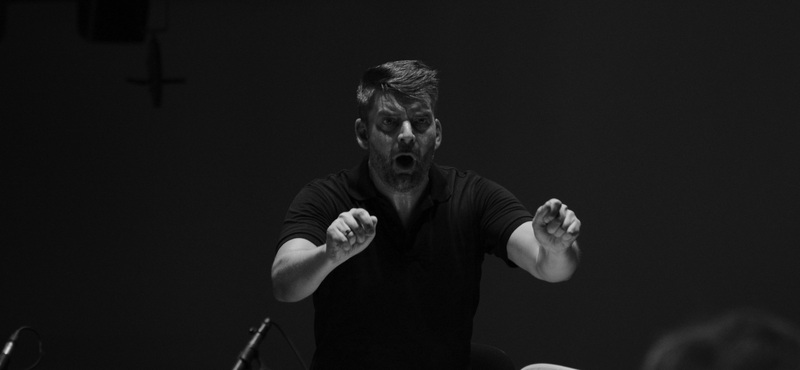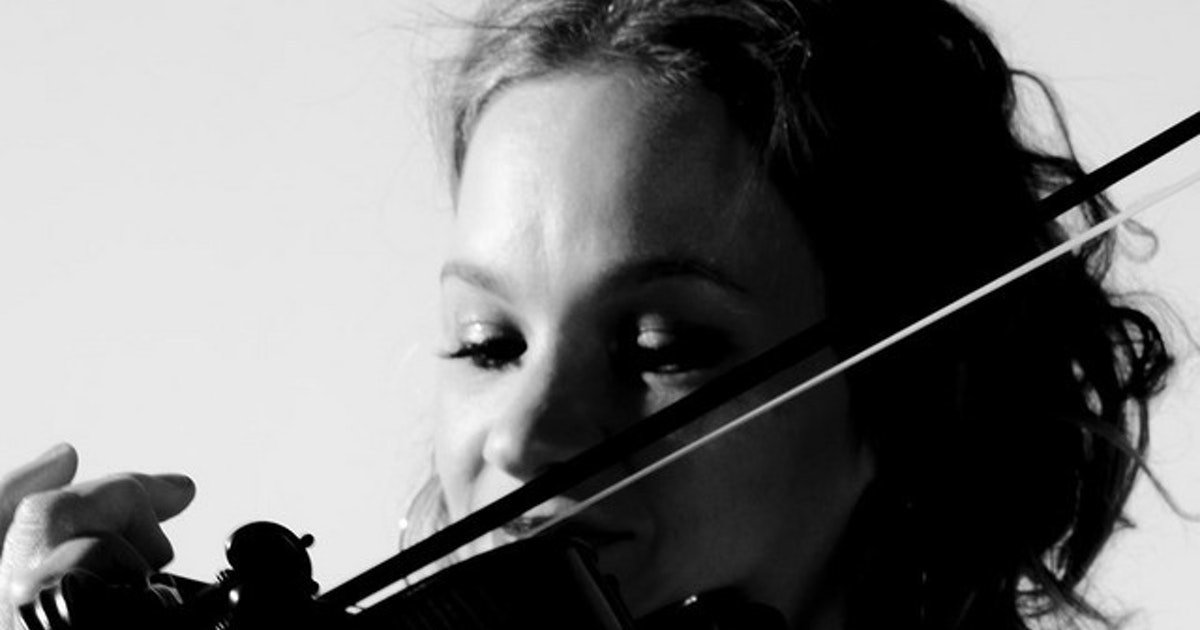Hadelich at the KC Terrace

Violinist Augustin Hadelich is in his prime and securely in the top echelon of fiddlers today. I’m not sure why the Kennedy Center relegated him to the Terrace Theater when Josh Bell, Hilary Hahn, and Maxim Vengerov play in the big hall, as he is certainly of comparable quality, and last Sunday afternoon’s recital with pianist Orion Weiss was completely sold out.
And it was predictably excellent. A musician of his stature could certainly play nothing but repertoire masterpieces and audiences would love it. But this German artist, born and raised on a farm in Italy, offered a smorgasbord of six varied works (counting his encore), four of which were by American composers. And it wasn’t just “look-at-me-I’m-playing-a-brand-new-piece-and-now-I-can-check-off-that-box-and-get-back-to-serious-repertoire.” None of the American works were new; he simply treated them as if they were standards, fully worthy to be heard next to tentpole sonatas of Beethoven and Prokofiev, and with such unassuming but brilliant advocacy they were.
To be sure, John Adams’s Road Movies (premiered in the Terrace Theater in 1995) is approaching modern classic status; I know of at least a half-dozen violinists who play it. The first movement is reminiscent of Stravinsky’s Duo Concertante without the latter’s concentration, the slow movement draws dour, lugubrious lines with the instrument’s G-string tuned down to F, and the finale a driving perpetual motion machine that seems to take wing off of the Presto from the Ravel Piano Concerto, though the cross-rhythms between the two instruments taxed even these two fine players.
Daniel Bernard Romaine (born 1971 in Chicago) wrote Filter for Hadelich in 2001; a goulash of electric guitar (with pedal effects), afro-funk, and electronic music. I was lukewarm about it – everything was on the surface -- but the audience erupted in whoops and cheers, at least partly at the sizzling virtuosity.
I was particularly looking forward to hear Hadelich in the Prokofiev because the piece is full of double-stops, and it was his preternatural control and beauty in such difficult passages that stood out when I first heard him a decade ago. And indeed, under his hands, the two voices sang out with warmth and purity. Also special were the fast scales near the close of the first and last movements; an eerie susurrus that seems to suspend time.
Weiss had the piano lid raised all the way, which unfortunately is the modern style for string recitals. While his care for balances was manifest, the piano writing in the second and fourth movements was more than he could control, and crucial violin passages were buried. The opening work, Beethoven’s Op. 96 sonata, was expertly-groomed, perhaps too much so. Accents and sudden dynamic changes were underplayed, and the enigmatic opening gesture lacked metrical clarity. Again, Hadelich’s double-stops in the finale were alone worth the price of admission, but again Weiss allowed the piano to swamp the violin in the coda.
The program ended with Romance, Op. 23 by Amy Beach, America’s first important female composer, written in 1893. Lushly-romantic and redolent of Edward McDowell and Dvorak in his American period, it was a true dessert after the rigors of the Prokofiev F minor sonata. Though the audience wanted more, Hadelich and Weiss offered only a single encore, a sinuous tune by the early jazz violinist Eddie South.





